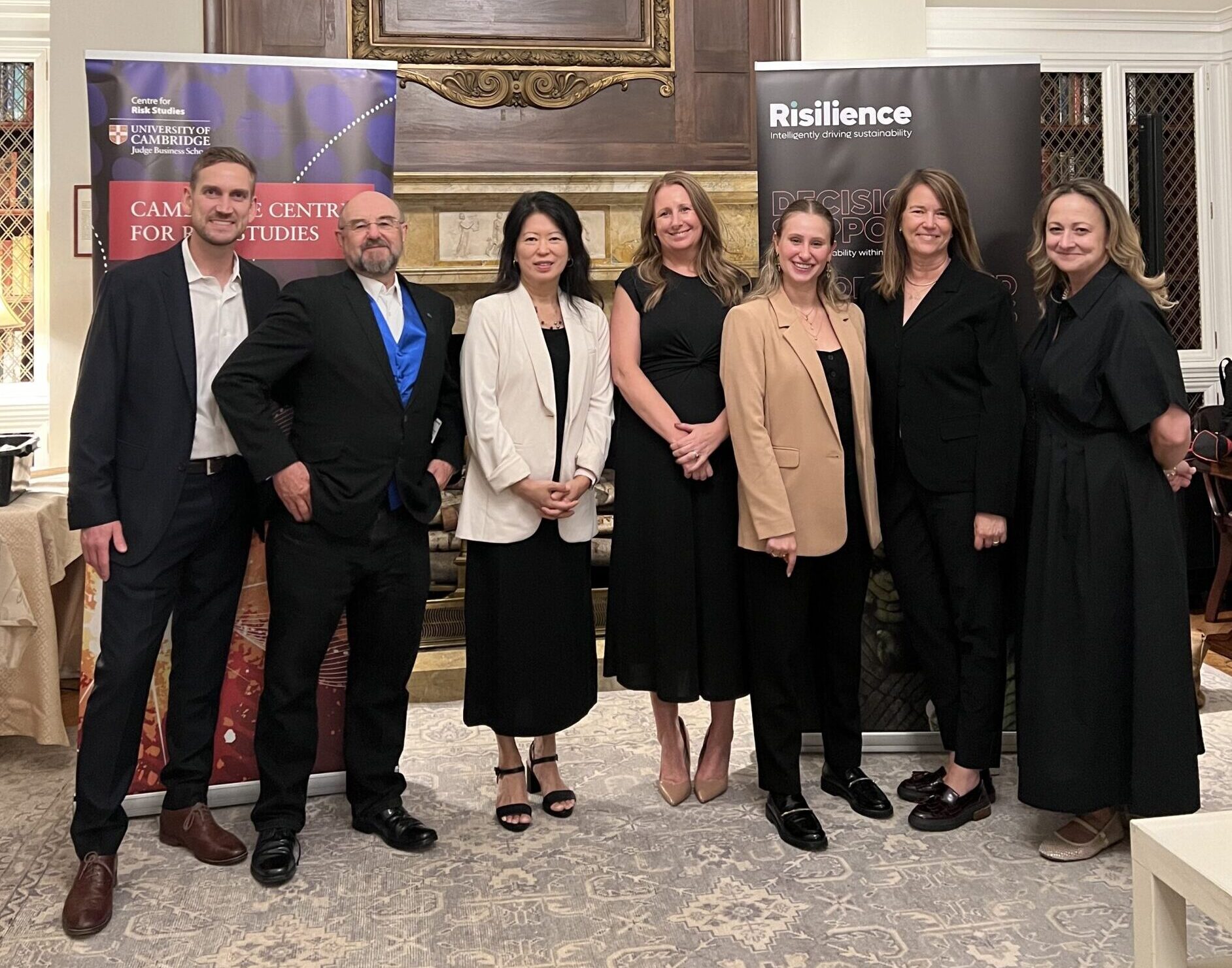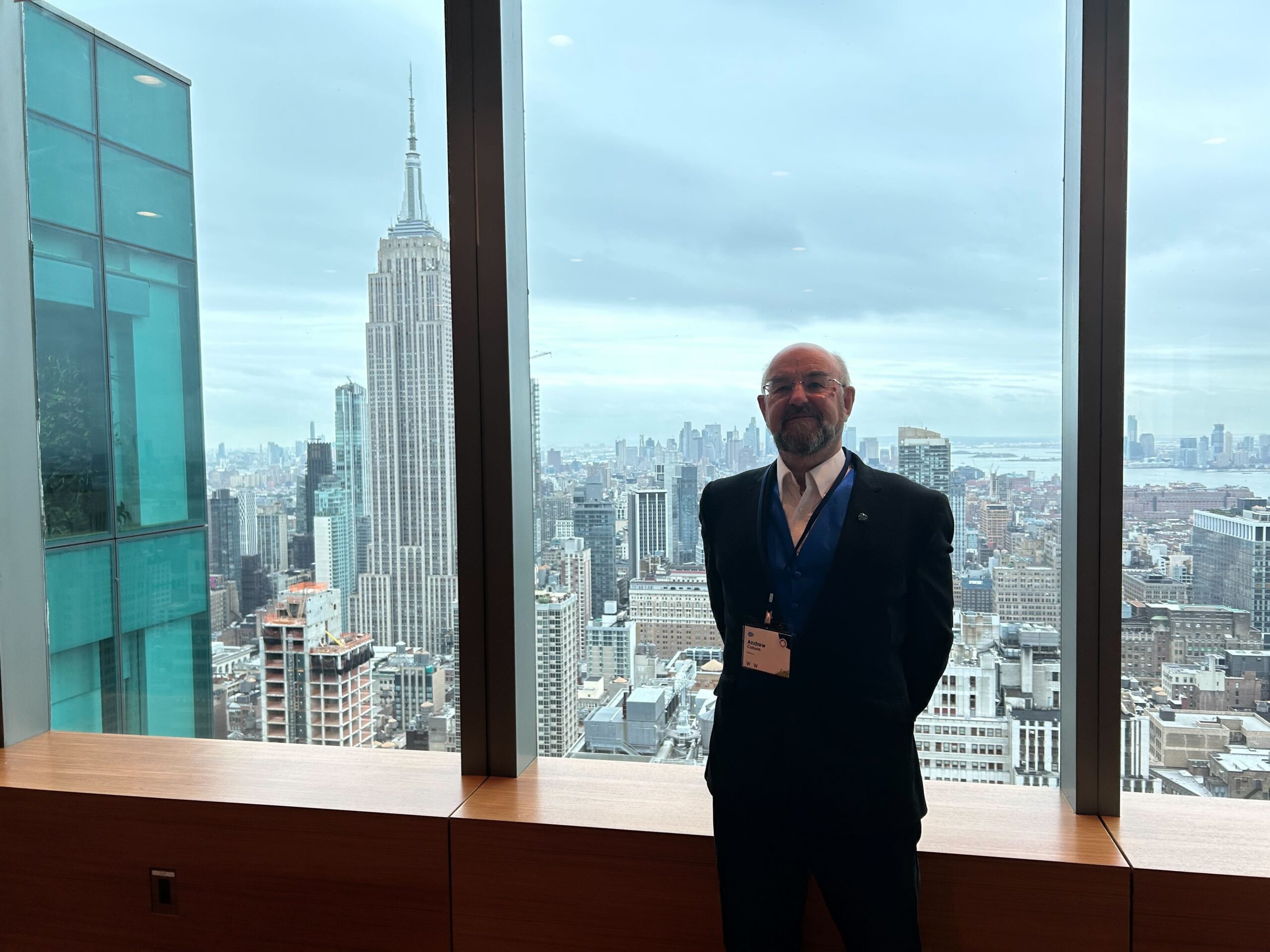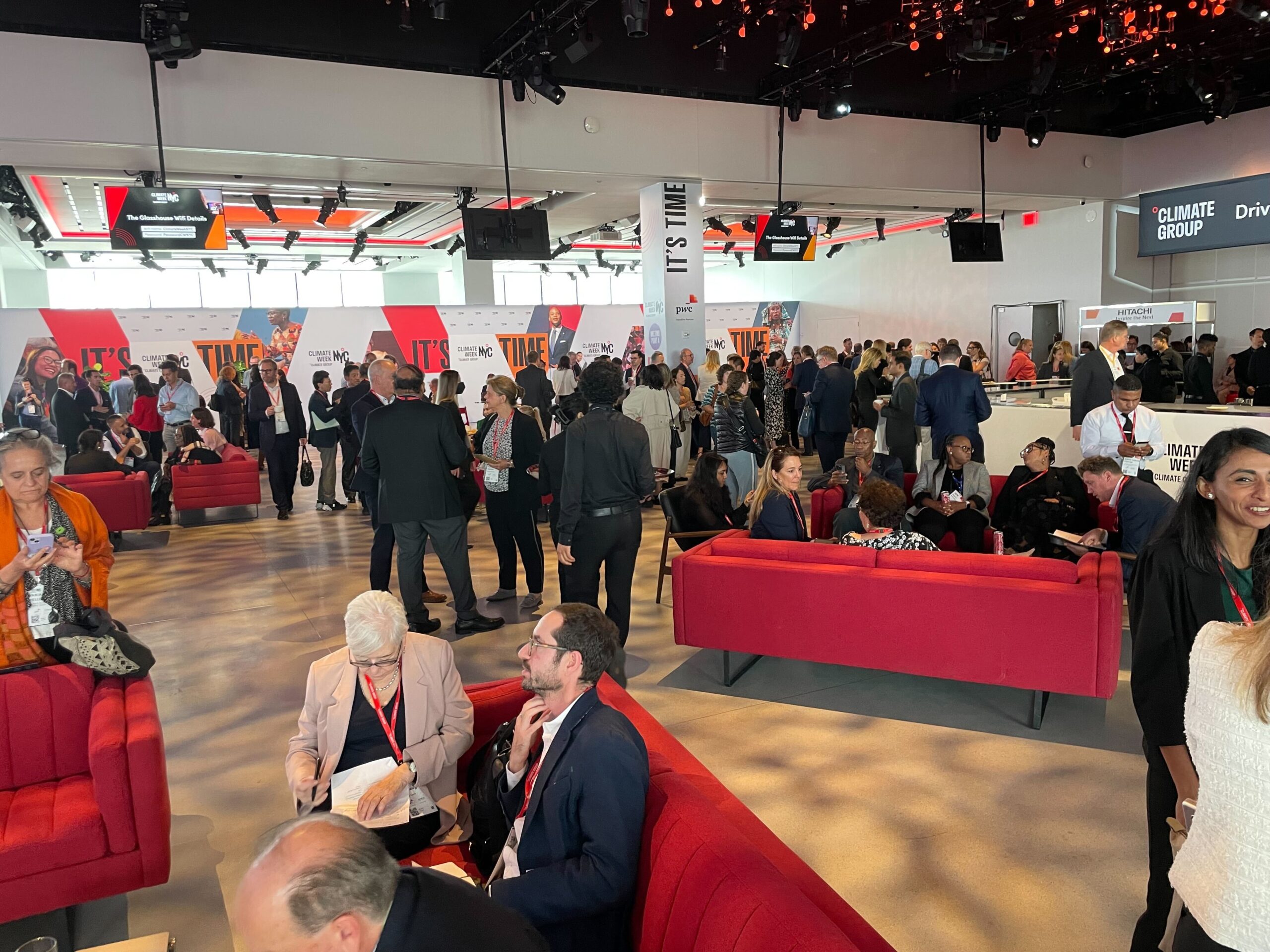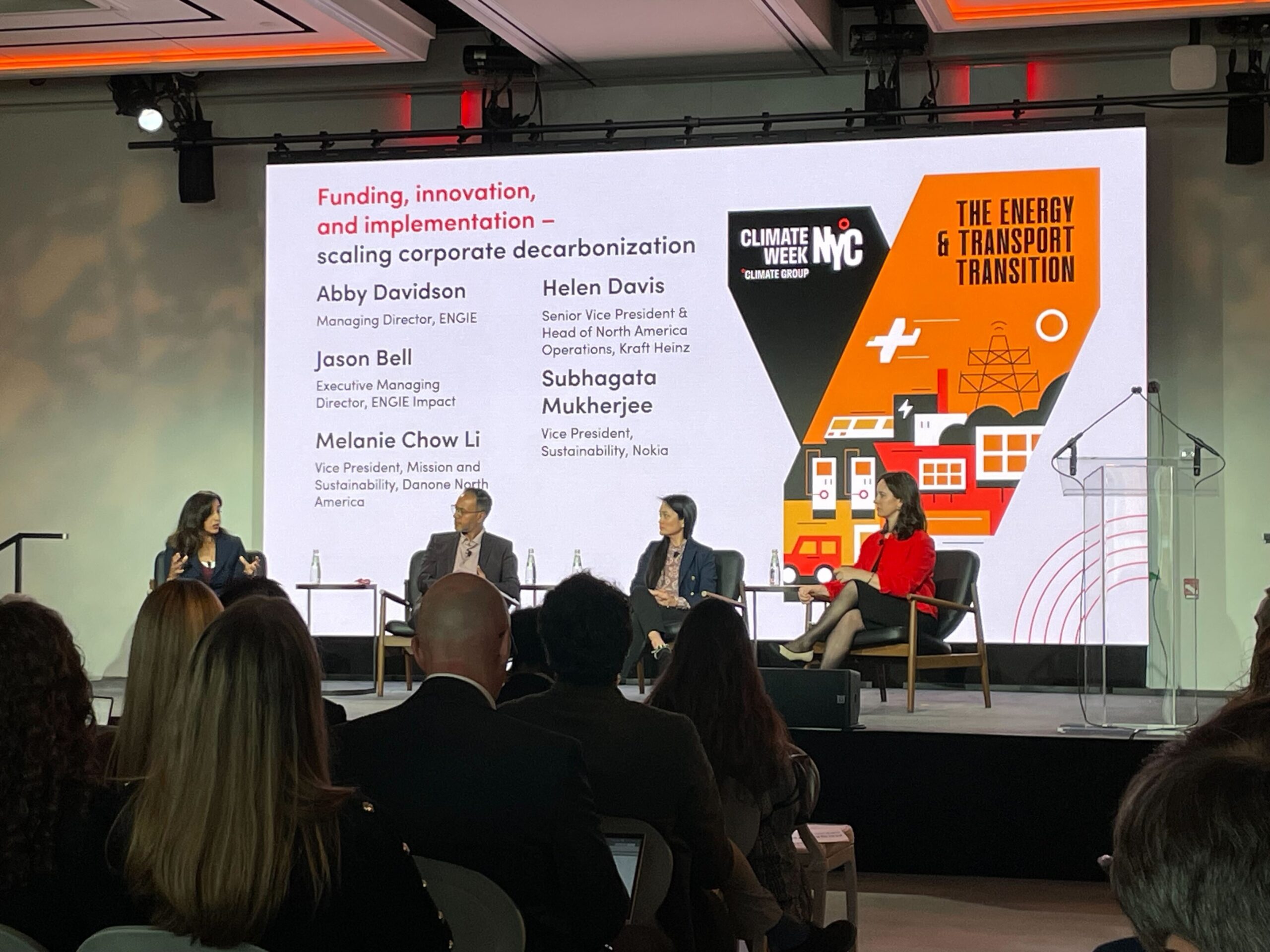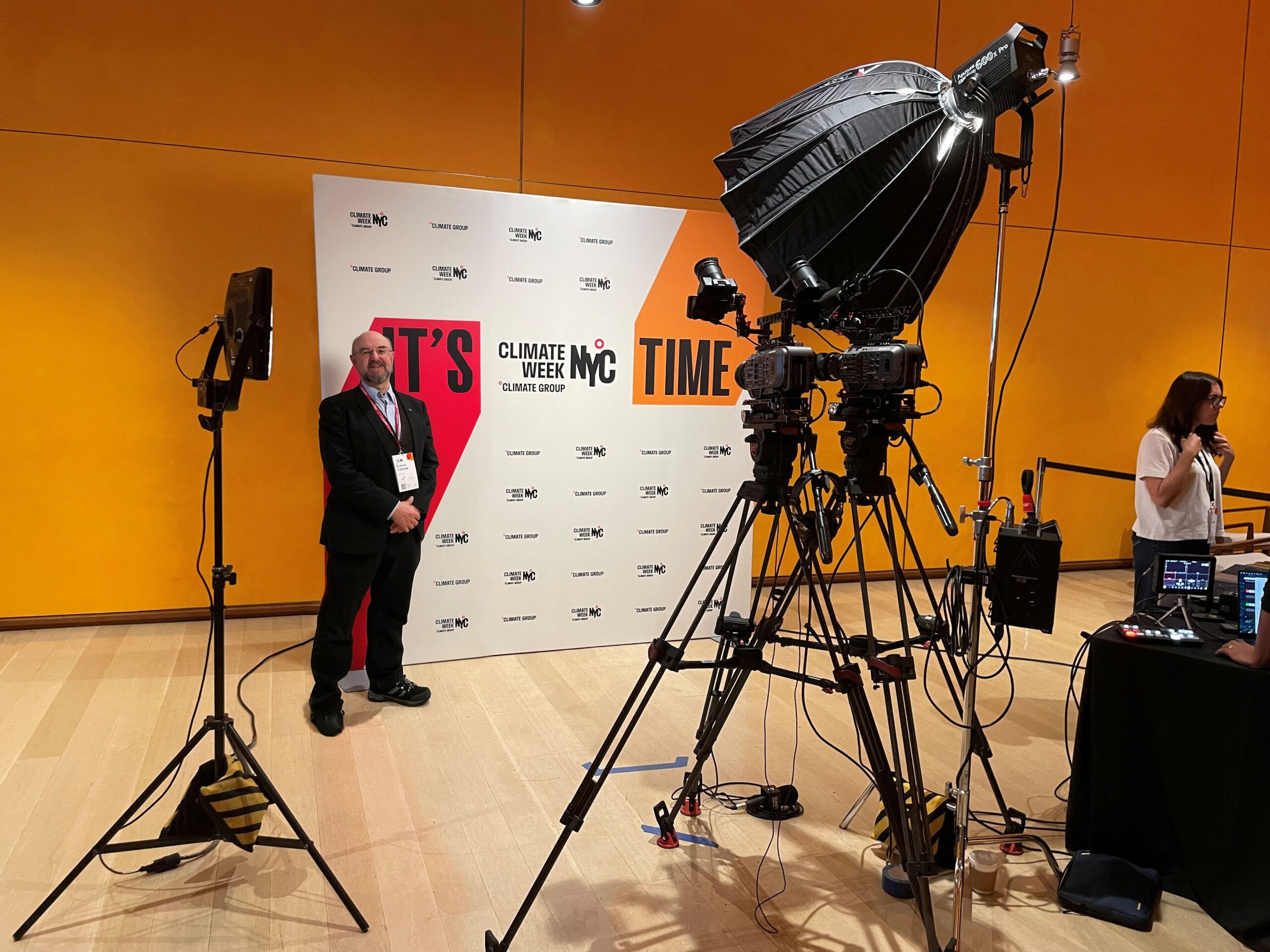Friday 27th September
As menacing category-four storm Hurricane Helene wreaks havoc in Florida, a stark and solemn warning blows in to remind us of what’s to come if we don’t act on climate, now. While the storm surge gathers pace on the east coast, Climate Week NYC is winding down for this year but it’s rallying cry still rings clear.
Getting down to business
The melting pot of political players, policymakers, business leaders and climate organisations that is Climate Week NYC creates fertile ground for meaningful discussion and valuable insights, demonstrating the power of collaboration around a shared goal. The groundwork has been laid but, as the theme of this year’s event emphasised: we need action and business must play its part.
It’s time to look forward and apply lessons learned to accelerate decarbonisation commitments and rewiring business to become ready for our net-positive future.
The good news is that some corporates are already breaking the ground, proving the possibilities and optimising the opportunities that sustainability brings to markets. Better yet, there are approaches and practical steps that all organisations can take to progress in their sustainability journey and start realising benefits, while building resilience for the longer term.
- The critical role of financial quantification in the business of sustainability
“We know that progress requires actionable transition plans: plans that financially quantify climate-related risks and opportunities to provide a shared language and insights that unify the sustainability and business strategies, and speak directly to the Board. Understanding and demonstrating the connections between implementing sustainability and financial value is key to making the business case.” Dr Andrew Coburn, CEO at Risilience
As the official Finance Partner for Climate Week NYC, we champion the critical role of financial quantification in the transition to net positive. Understanding and demonstrating the connections between implementing sustainability and financial value is key to making the business case. According to the World Economic Forum, there is $10.1 trillion of global value to business from adopting a nature-positive strategy. The impact of sustainability on corporate strategy is value creation.
- Business as usual is changing
“I think that there’s an opportunity for political will on behalf of government, and ingenuity and the entrepreneurship and the capital of the private sector. We have the makings for a perfect positive storm.” Lori Kerr, CEO at FinDev Canada
Global organisations are under increasing regulatory pressure to demonstrate environmental stewardship and integrate climate-and-nature-related risks and opportunities into financial reporting. Business as usual is changing as companies face new expectations from investors and consumers to demonstrate a genuine commitment to prioritise sustainable practices across their operations and supply chains.
Businesses can no longer operate with impunity. Increasingly, companies are required to look beyond just profit and consider the consequences of their actions for people and the planet. Leading firms are now establishing new standards, which will become the benchmark from which all organisations will be held accountable – giving them the social licence to operate as a business of the future. Businesses that don’t recalibrate will be left behind.
- Climate action is not about sacrifice; it is about opportunity
“There are some really good signals coming where they do have a climate-based approach. On average, their revenues grow more quickly, they have stronger margins, and particularly where it’s around product innovation that is climate friendly, nature based,” Will Jackson-Moore, Global Sustainability Leader at PwC
The change in the global business landscape also brings opportunity to advance the sustainability agenda internally and make a compelling business case for action. More CEOs are leading the charge: nearly a third, 30 per cent, of global CEOs say that climate change will drive the way their companies create, deliver and capture value to a large or very large extent over the next three years, up from 22 per cent who said it drove company actions in the past five years, according to PwC’s 27th Global CEO Survey.
Managing sustainability-related risks means building a resilient supply chain that can reduce costs of business and enhance long-term profitability. It means access to new streams of capital and, in an era when the consequences of climate-and-nature risk are increasingly visible to and experienced by communities and consumers across the world, the opportunity to protect, enhance and grow brand and business value.
- Sustainability as a business imperative – unifying the sustainability and business strategy
“Trying to bring more visibility, transfer, traceability, setting the responsible sourcing policies. So for us, this is a very, very close partnership with different teams across the business, so that we’re approaching it as a business imperative and not as a sustainability initiative,” Ezgi Barcenas, CSO at L’Oréal.
Sustainability should not be approached as an add-on initiative to the business. In fact, organisations that integrate sustainability into the business strategy, providing a critical lens for all decision-making, will begin the transformative process towards profitable sustainability. These companies will be best positioned to mitigate against transition risks and optimise commercial opportunities emerging from the net-positive economy.
- The power of innovation and technology in the transition to net positive
“We know that clean technology is going to play a critical role in the race to decarbonise, but we’ve got this puzzle about how we get the seeds of innovation to be adequately backed by finance and encouraged by legislation, and create that circle,” Helen Clarkson, CEO Climate Group at Hub Live
Technologies that have passed the ‘green discount’ stage and are now cheaper than the traditional alternatives are making a significant difference in the areas they are deployed.
But the tech landscape is a mixed bag with financiers expressing confidence that the capital is available to fund entrepreneurialism in climate tech but, in the same breath, warn losses will be part of the picture in the rush for bankable technology. While there is much focus on the potential of AI, there are also concerns and no one technology provides a silver bullet. Tech does and will continue to play a part in decarbonisation but it is only one part of the solution.
Driving better business results
While the transition to net zero and nature positive brings challenges, business leaders are increasingly seeing the value of sustainability; in a recent IBM study 75 per cent of executives agree sustainability drives better business results.
It really is time to get ahead in the race to decarbonise, integrate financial and transition planning, unify sustainability and business strategies and prepare to thrive in the net-zero economy.
As Helen Clarkson, CEO of Climate Group, said at the Opening Ceremony for Climate Week NYC: “What we’ve achieved in the last decade is remarkable, but we cannot stop here. We must aim higher, be bolder, and keep pushing forward. How the future will judge us depends on the action we take right now, it’s time.”
- To learn more about how Risilience can support your organisation’s sustainability journey to net positive, get in touch: contact@risilience.com.

